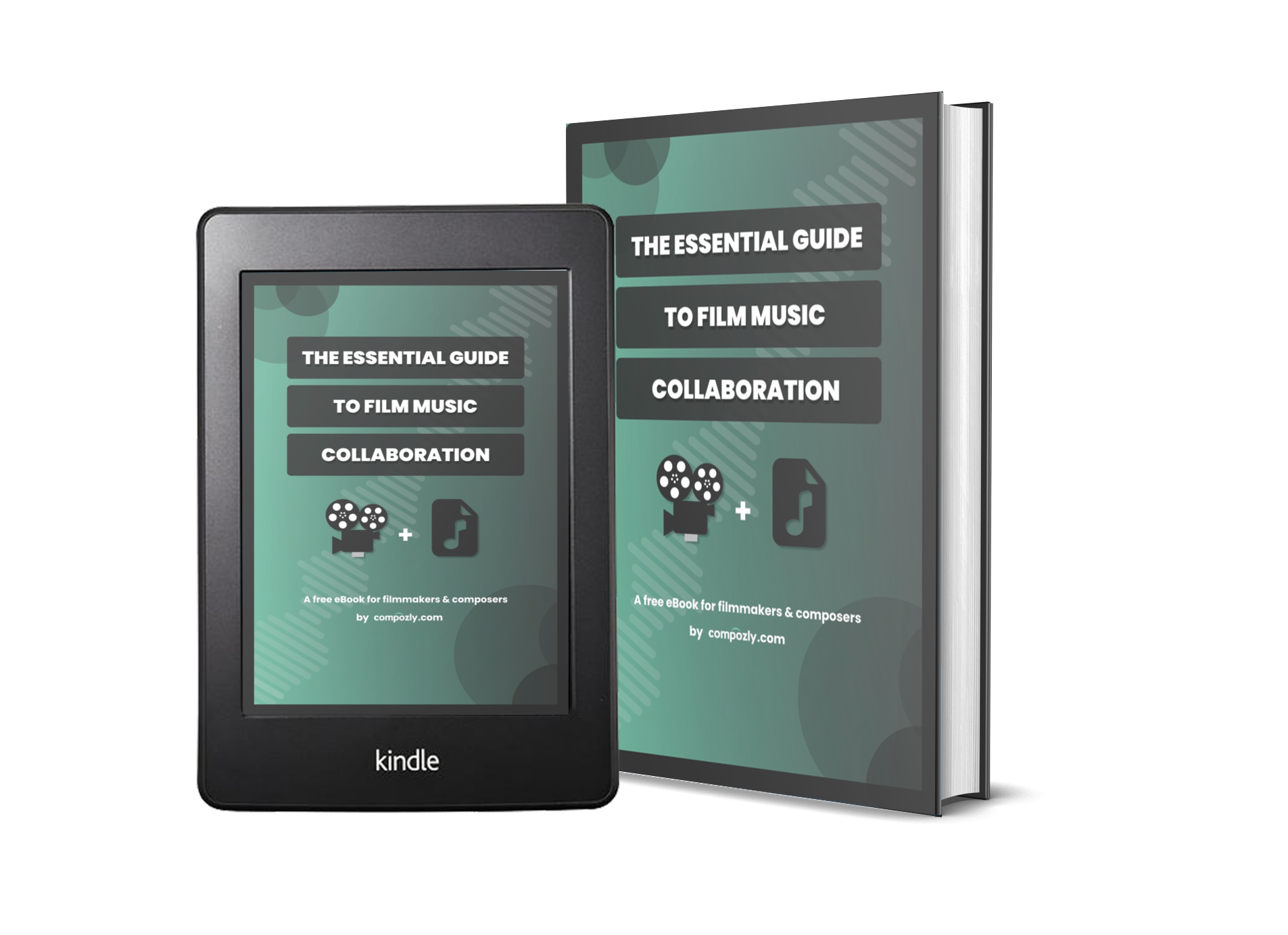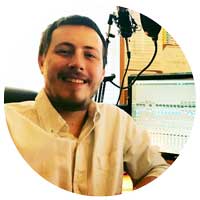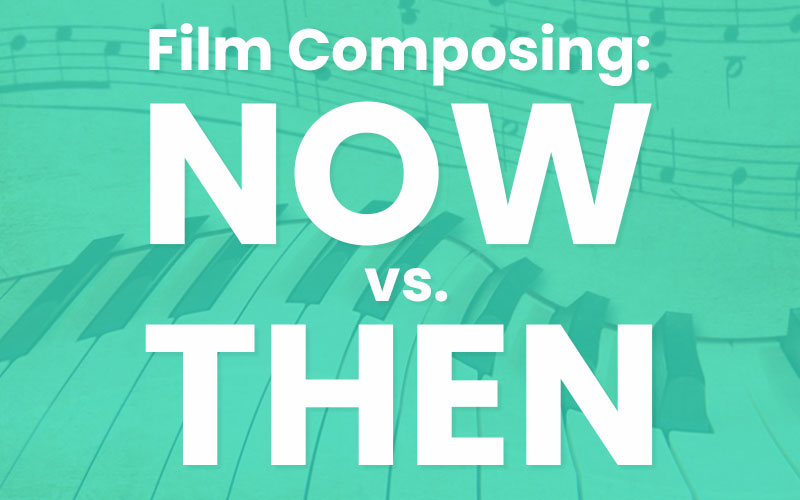Are you the next John Williams? The next Hans Zimmer? And no I don’t mean in composing abilities only, but also in terms of HOW you approach scoring films? In this article, we are talking about the changes and progression in film scoring over time. Check out the differences of how film composers created their scores below and see how technology has really shaped the scoring process over the past 20 odd years.
Old School Film Composers from the 70’s, 80’s and 90’s
- Pen & Paper
- “Mockups” used to only be a composer & director at a piano, but sometimes the first time the director would hear the music wouldn’t be until the first scoring session with the full orchestra. What if they hated the music? Would the composers have a backup score to present while the orchestra was present to record?
- Composers for the most part were limited to orchestra, piano, jazz, and rock/pop styles of music for their scores. Electronic music and virtual samples didn’t come into play until the modern composer era when Jerry Goldsmith began experimenting with electronic synths in the 80’s, and Hans Zimmer in the 90’s.
- Themes (leitmotifs) were a major part of movies during this period, leading to memorable and iconic music that represented characters and franchises (E.T., Indiana Jones, Star Trek, Jurassic Park, etc.)
- Film scores fit much more like a glove, matching the scenes more closely, with mickey-mousing used more often, and fewer risks were taken with chords, sounds, or style.
- Proficiency in writing sheet music and/or playing the piano and/or other instruments were required to be a composer due to the limitations in technology. No dragging notes on a screen, no DAW auto generated sheet music, and composers couldn’t hear high quality virtual orchestral instrumental versions of their scores until recording day. Mockups didn’t exist, and with today’s standards, mockups can sometimes be the FINAL score depending on the scope of the film project.
- As previously mentioned, many composers such as Jerry Goldsmith and Hans Zimmer began experimenting with computers, digital samples, electronics, and synths in the 80’s, so it wasn’t completely pen/paper/piano for everybody, These composers were the pioneers who gave electronics a real chance early on while many others could not convert, leaving them with only one composing style to use that relied completely on their ability to create amazing harmonies and melodies with sheet music and a piano. Many scores in this era required experimentation in order to match the progression of the filmmaking industry as a whole.
To see first hand how the process was different, check out the video below. I personally love hearing Jerry Goldsmith discuss his process back then, and watching him review an actual film reel running on a mini projector, with sheet music canvas’ and a piano. It really exemplifies how simple film scoring really can be at heart. This moment alone should give you a snapshot of how things have changed compared to how film scores can be approached today, where experimentation and embracing technology is the future and present in composing for motion picture.
Modern Film Composers of the 2000’s and 2010’s
- DAWs (Digital Audio Workstations) such as Logic Pro, Cubase, Ableton, Sirius, etc.
- Mockups can be considered good enough to be the actual scores for many indie films
- Sound design experimentation creates more unique scores than ever before.
- Themes have become less common, but certain movies still utilize leitmotifs effectively (The Avengers, Wonder Woman, David Dunn, Star Wars obviously).
- Film scores today allow for an enormous amount of experimentation. Because film music has existed for 100+ years, our ears and filmmakers ears need something new from time to time, so while technology makes it super easy, the real challenge is creating a unique sound while also staying within the lines of being an effective film composer. Filmmakers don’t necessarily want a traditional composer, but more of a collaborative musician partner.
- Editors will occasionally cut to the music directly, meaning that a lot of music is written super early in the production process, rather than John Williams for example, who still swears by writing to picture. He may have a point, but most filmmakers don’t have the trust to give a completed cut to a composer and sit around for 6-8 weeks, but at the same time, most composers aren’t John Williams.
The video below demonstrates how Junkie XL (Tom Holkenborg) comes from the electronic side when it comes to his creation style, as most of the music in this video sounds like an underscore for a film. This creation process is similar to DeadMau5 and goes back more to electronic music production in execution, which is Junkie XL’s background, as a touring electronic DJ/producer.
I HIGHLY recommend watching his tutorial series, as he also dives deep into DAW work such as orchestral realism techniques and much more. If you consider yourself more on this side of film scoring, check out the rest of his videos for a great in depth look at electronic music/orchestral composing in the computer and with synthesizers.
Overall, let’s say that if you’re reading this, you’re in the camp of a modern composer. If not, you should be glad that this career has evolved incredibly in a way that makes a composers life much much easier than back in the day. If you are a modern composer, be grateful you are able to make a career out of something that before required many more specific skills to accomplish. With the addition of streaming services, the need for composers is there, and thankfully the technology for film music has been able to match the level of opportunities that streaming services gives to filmmakers.
So if you’re a dedicated music-maker of any kind, with a passion for film and an understanding of how music plays a role for picture, story, and character, you are well on your way to being a film composer!

Get your FREE copy of "The Essential Guide to Film Music Collaboration" to help create better music for your film and video projects.
About the Author

Adam Robert Galloway
Film Composer
Adam is a content creator for Compozly and a fellow music composer. He has been scoring films since 2012 and releasing original & cover songs as Muzikm4n since 2017. Despite no formal training in composition, Adam has spent many years learning how to produce and compose music that provides filmmakers with effective and unique scores.
© 2025 Compozly, LLC ALL RIGHTS RESERVED

